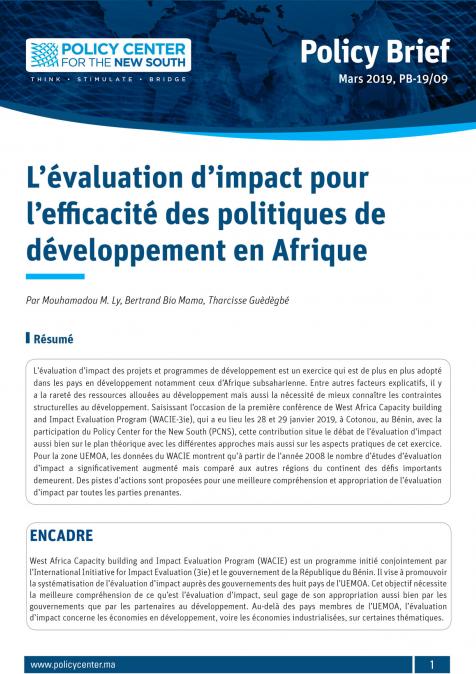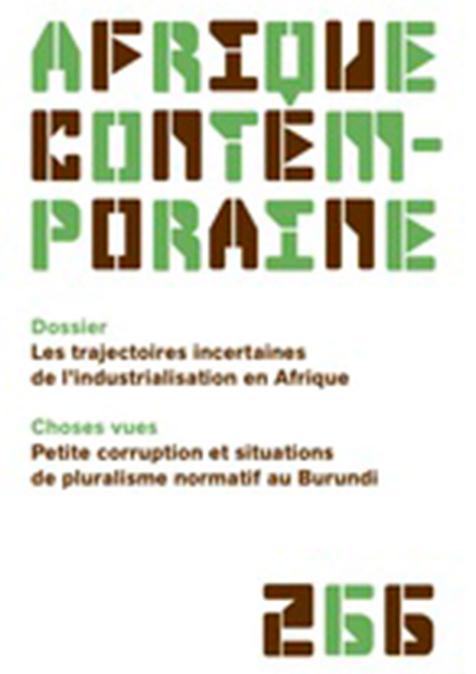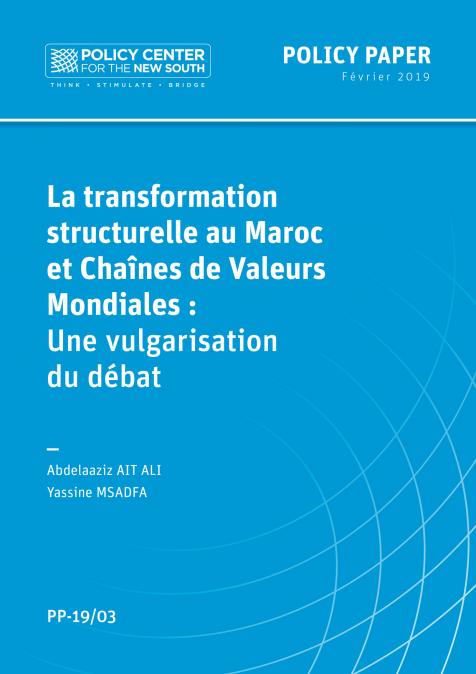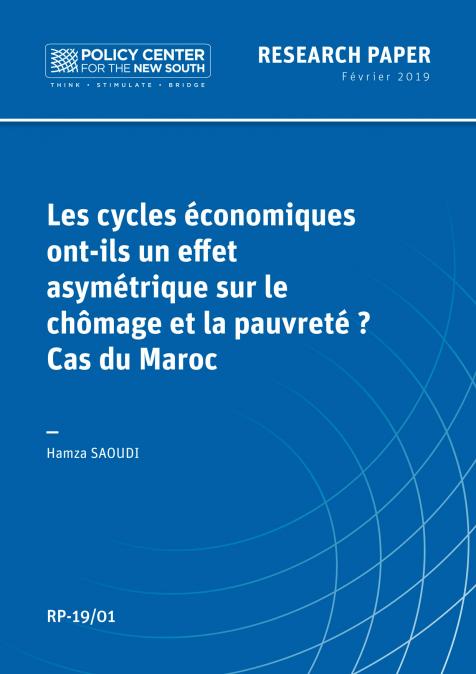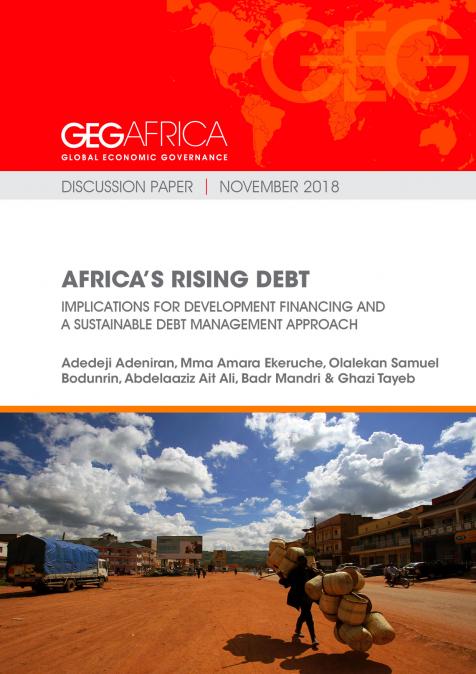Publications /
Opinion
I am in Marrakech attending the Atlantic Dialogue, a very interesting event organized by the OCP Policy Center. One of the questions put to debate was: "How can Sub-Saharan Africa benefit from its economic potential to grow, thrive and eliminate poverty?"
In fact, this is one of the questions most frequently raised by the economic development community. And one of the most common responses is that, alongside natural resources, the young population is the most powerful engine of growth in the region.
Indeed, with the world's youngest population, the region could benefit from the unique gains provided by the demographic dividends.
In short, the demographic dividend theory says that because of the demographic transition, a growing portion of the population will eventually be part of the working age population, which will result in a relative increase in labor supply and a fall in the dependency ratio, which is the ratio of inactive population (children and the elderly) over the working age population.
During the demographic transition, the economy becomes more competitive in the production of labor-intensive goods and services, spends relatively less on public policies aimed at the inactive population and can therefore save and invest relatively more.
East Asia is a good illustration of how the demographic dividend can boost economic growth, raise per capita income, and change forever the prospects for development.
Could Africa also benefit from its enormous potential for a demographic dividend, which is yet to come? The answer is, perhaps.
The cautious answer is related to the fact that new production technologies based on artificial intelligence, the internet of things, sensors, robots and 3D printers are revolutionizing manufacturing and the geography of production and of employment. Adidas, for example, is opening a sports jersey factory in Atlanta whose unit labor cost will be as low as $ 0.33 per shirt. There will be 400 direct and indirect jobs producing 800 thousand pieces per day. Other factories are being opened by Adidas in Germany and in other advanced countries. Nike is on the same footing and is also opening automated shoes and garnment factories. Countries such as El Salvador and Bangladesh, which are heavily dependent on the production and export of garnments and footwear, are likely to face difficulties as low labor costs are becoming less important as a competitive advantage.
The geography of production and employment is also changing in the service sector. E-commerce already accounts for a significant and growing share of retail trade in a number of countries, including emerging ones, with unprecedented impacts on traditional jobs. Shopping on the platforms of giants like Amazon and Alibaba is becoming part of the daily lives of many people around the world. Although at a still modest level, it is only a matter of time the service sector of the sub-Saharan region will also come to experience the effects of technological changes.
With the population still growing at high rates, engaging young people in the labor market will most likely be the greatest economic challenge of the African subcontinent over the coming decades.
Given the ongoing technological changes that are relegating labor costs to a lesser element of competitiveness, what can Africa do to create jobs and mitigate the risks inherent in this agenda? Following a "more of the same" approach will do little good.
A more promising alternative is to engage the region in the internet-based economy and in future-oriented activities. While it may sound like an overly ambitious idea, the region has already shown its inclination for innovations and technologies by making the old cell phone a sophisticated tool for financial and trade development.
Obviously, the task will not be easy and it will require a lot of work. But perhaps this is the best bet to most countries in the region.
Various cases suggest that Africa should indeed be bold in embracing the new technological frontier. Uruguay, for example, is doing a lot in meat treceability; Chile is advancing in smart mining and forestry; Brazil is developing very promissing agritechs; and India is among the leaders in software production for the industry 4.0.
In order to succeed, sub-Saharan Africa will have to work on the various fronts needed to advance that agenda, including the following: reform the education system, invest more in infrastructure and in ICT, improve the business environment, and ensure the rule of law in such a way as to create an environment more conducive to entrepreneurship and private investment. Of course, there is also a need of a broad policy view.
The region could also benefit greatly from the deployment of new technologies in traditional activities such as agriculture and mining, which could have major economic and social impacts.
Finally, it is critical that the region avoids falling into the digital commoditization trap, which clearly sets out the differences between the benefits of using versus the benefits of developing, distributing and managing the new technologies. Africa will only make a definite leap if it prepares itself to be a protagonist of this new technological frontier.
Note: I wrote this note in my capacity as a professor of economics and not as a member of the Brazilian Government.


